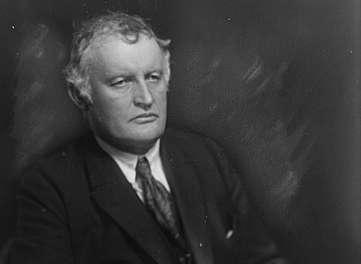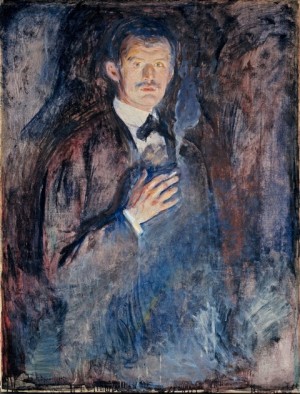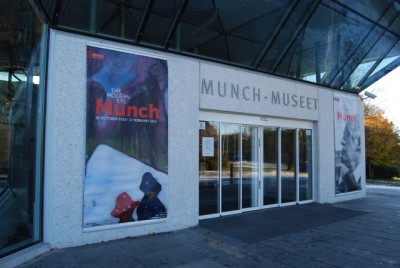Norway’s most famous artist, Edvard Munch, would have turned 149 years old on Wednesday. He’ll be the subject of a local jubilee for the next 12 months, in the run-up to his 150th birthday, despite disappointing funding for it and Oslo politicians’ failure to agree on a new museum to house his priceless works.

The City of Oslo inherited Munch’s own collection of his works when he died in 1944. City officials in charge of the vast collection have been accused of dereliction of duty over the years, with criticism reaching a peak recently because of endless political quarreling over plans for a new Munch Museum in Oslo. They remain stalled indefinitely.
Directors of both the existing Munch Museum and the National Museum are left to do the best they can to honour the artist, unveiling other plans on his December 12 birthday for jubilee events that will include 120 events around the country. The main event will be what’s billed as the largest Munch exhibit ever mounted, featuring 250 of his works to be divided between the Munch Museum and the National Museum’s National Gallery in Oslo. Munch’s art created between 1882 and 1903 will be displayed at the National Gallery downtown, with his art from 1904 until 1944 exhibited at the Munch Museum in Oslo’s Tøyen district.

Munch’s own “Self-portrait with a cigarette” started a nationwide tour on Svalbard on Wednesday. The major new exhibit, “Munch 150,” will open on June 2 and run through October 13, with works gathered not only from the Oslo museums’ own collections but also from private collectors and museums abroad.
The so-called “Munch Year” of events will be officially launched by King Harald on January 23 in the Oslo City Hall. It will also include special exhibits in eight places where Munch lived or worked in Norway, including Oslo, Løten (where he was born), Hvitsten, Moss, Fredrikstad, Kragerø, Åsgårdstrand and Vågå.
There will also be a series of conferences, films, walking tours in Munch’s footsteps, concerts and book introductions tied to Munch’s life and work, and all passengers arriving at Norway’s gateway airport, Oslo Lufthavn Gardermoen (OSL), will be welcomed with large reproductions of Munch’s art. “The jubilee will be very visible,” promised Audun Eckhoff, director of the National Museum.
Both Eckhoff and Munch Museum Director Stein Olav Henrichsen are still looking for more sponsors and funding for the jubilee, though. “I’m surprised that the willingness to join the effort isn’t greater,” Eckhoff told newspaper Dagsavisen. Japanese oil company Idemitsu has long provided funding for the Munch Museum, and other sponsors like Statkraft and Flytoget have joined in, but not many more. Public funding amounts to just NOK 17.5 million, from both the state and the city. “I wish everyone could contribute more,” Eckhoff said.

Meanwhile, city politicians refuse to compromise on a location for a new Munch Museum despite public demands that they do so, and budgets remain so tight at the existing museum that there’s been fear of layoffs. Hadia Tajik, the state government’s new minister in charge of cultural affairs, said last week that she wouldn’t get involved in the city’s ongoing squabble over whether to build a new museum on the waterfront at Bjørvika or on existing sites at Tøyen or the National Gallery. Nor will she promise funding contributions to a new museum.
There are other quarrels going on as well, with heirs to Rolf Stenersen, whose own art collection including works by Munch were also turned over to the city, wanting to break out of a forced merger with the Munch Museum. They want Oslo’s Stenersen Museum, which reportedly has also been plagued by various personnel problems, to be spun off again, independent of the Munch Museum. Even the city’s top politician in charge of culture, Hallstein Bjercke, has called all the conflict around Munch’s art “a circus.”
At least the current exhibit at the Munch Museum, Oslo’s own version of the highly successful “Modern Eye” exhibit that moved from the Pompidou Center in Paris to Frankfurt and then to the Tate Modern in London, finally seems to be generating local interest. After a slow start following its opening in late October, visitor numbers have picked up in recent weeks with November visits double what they were in the same month last year. The Oslo exhibit has also attracted international interest, and will run until February 16.
Views and News from Norway/Nina Berglund
Please support our news service. Readers in Norway can use our donor account. Our international readers can click on our “Donate” button:

